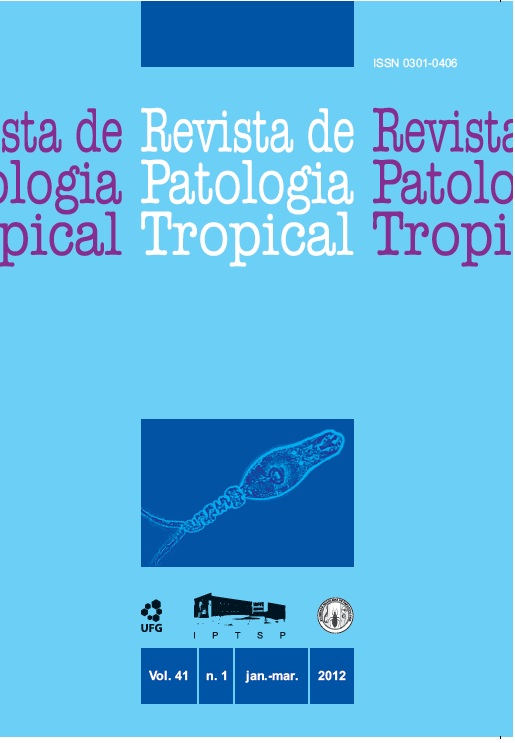Intestinal Parasitoses in Suburban and Rural Schoolchildren in Argentina
DOI:
https://doi.org/10.5216/rpt.v41i1.17748Keywords:
Intestinal parasites, Epidemiology, Suburban and rural schoolchildren, Argentina.Abstract
This study presents the results of the first stage of PROCOPIN (Program for the Control of Intestinal Parasitoses and Nutrition) comparing public health conditions and risk behaviors associated to intestinal parasitoses present in suburban children (SC) versus rural children (RC) from Argentina. Information about individual and public health conditions was collected for each child. A coproparasitological exam and a serial anal scraping were performed to each of the participants. A total of 465 SC and 251 RC were surveyed. In SC, the parasite prevalence rate was 39.1% and inRC 31.1% (p=0.032). Blastocystis hominis, Enterobius vermicularis and Giardia intestinalis were prevalent in both locations. Poor public health conditions in the homes of SC were not a risk factor to be infected; this suggests that the parasite transmission does not occur at home, but probably in the school or other places where a large number of suburban children are congregated. Among the RC, the public health conditions inside and surrounding the homes were risk factors indicating
the parasitic transmission occurred primarily there. Thus, social behavior of children should be taken into account along with the public health conditions and personal hygiene as risk factors for parasitoses.
Downloads
Downloads
How to Cite
Issue
Section
License
The manuscript submission must be accompanied by a letter signed by all authors stating the full name and email address, confirming that the material has not been published or is under consideration for publication elsewhere, and agreeing to transfer copyright in all media and formats for Journal of Tropical Pathology. The authors will not be paid for published articles. They are solely responsible for the content of those articles, even if the Editor holds the right to adjust them to the norms of the journal.
The reviewers will not be paid for the peer review process.

